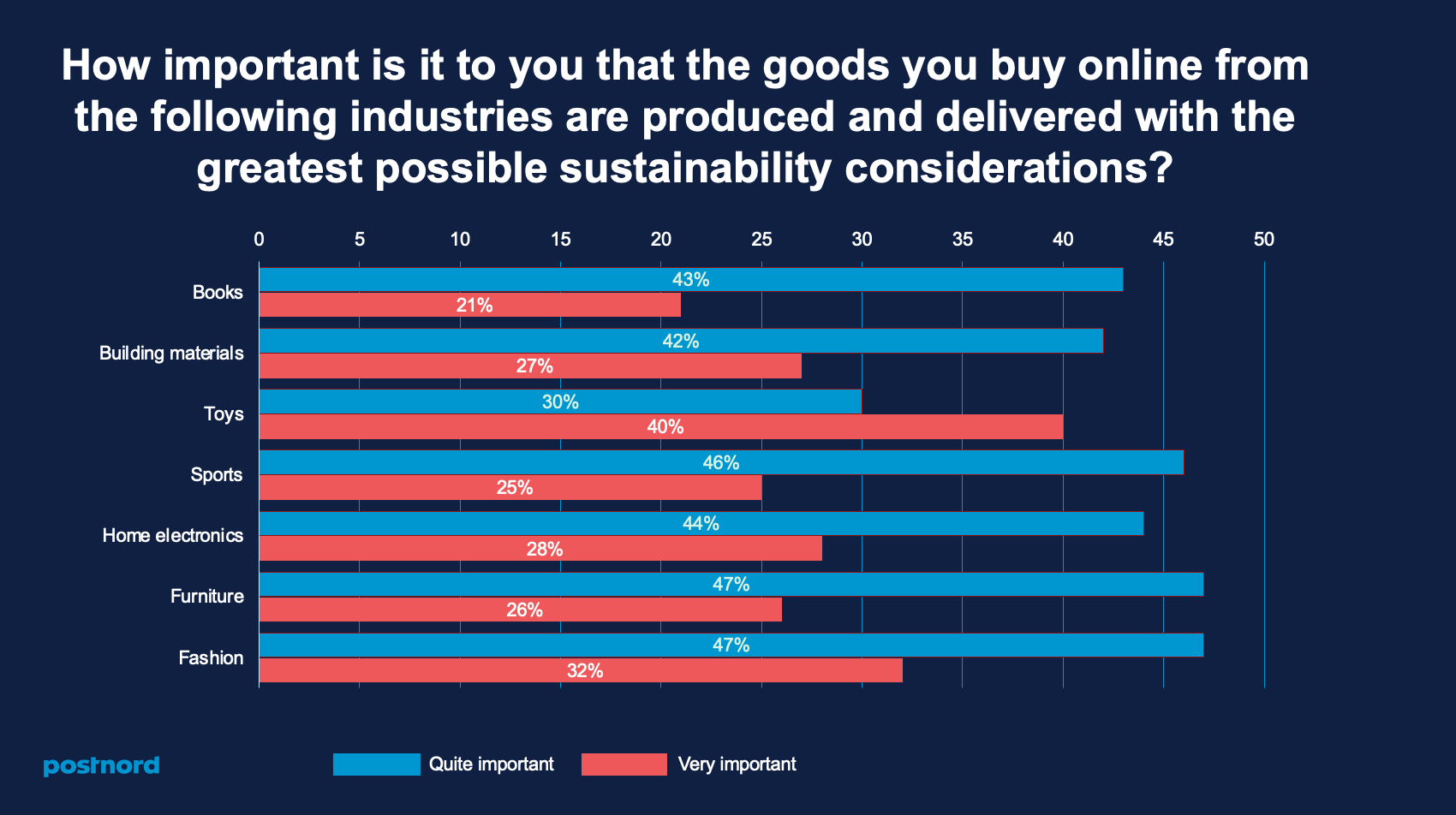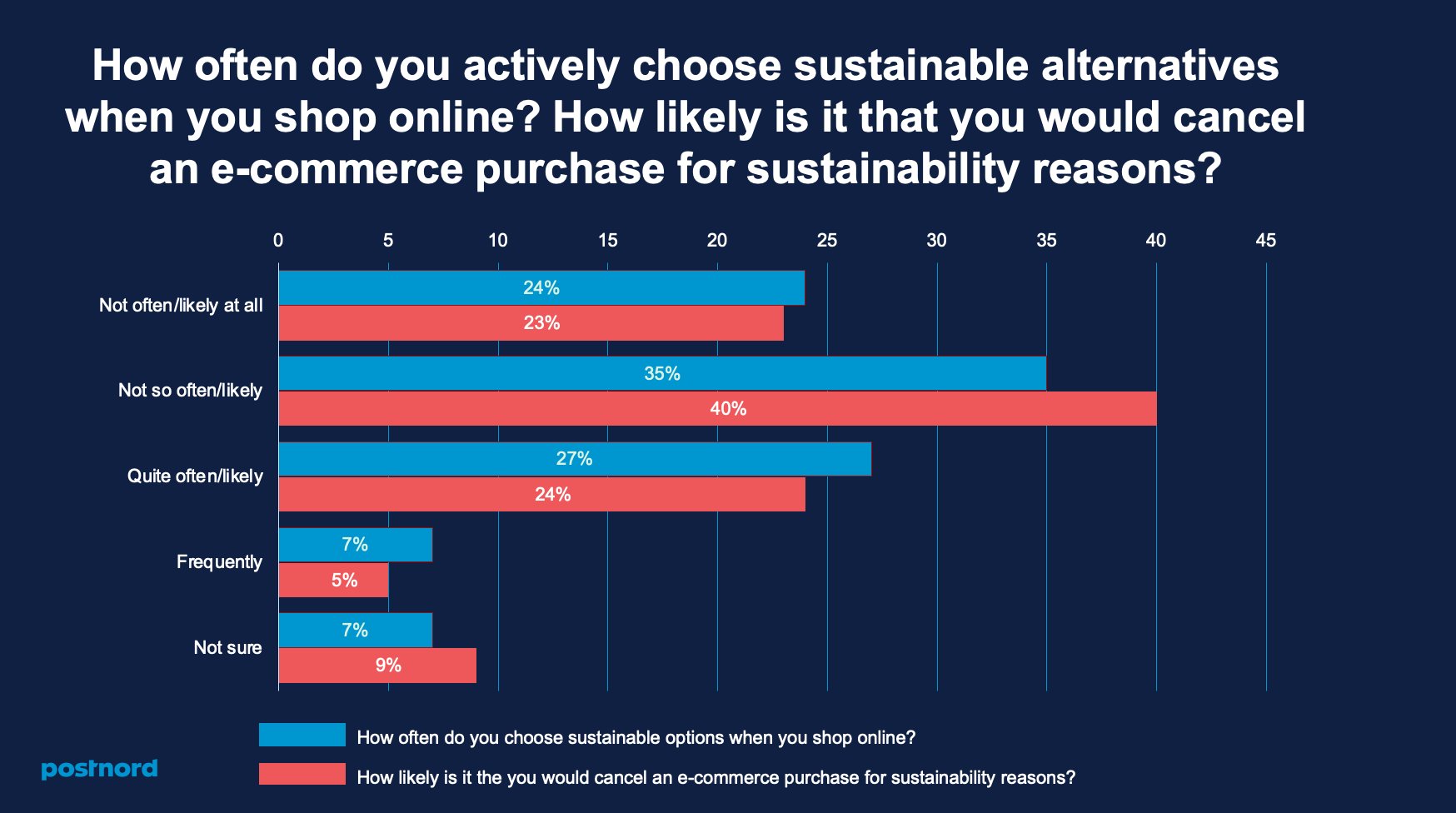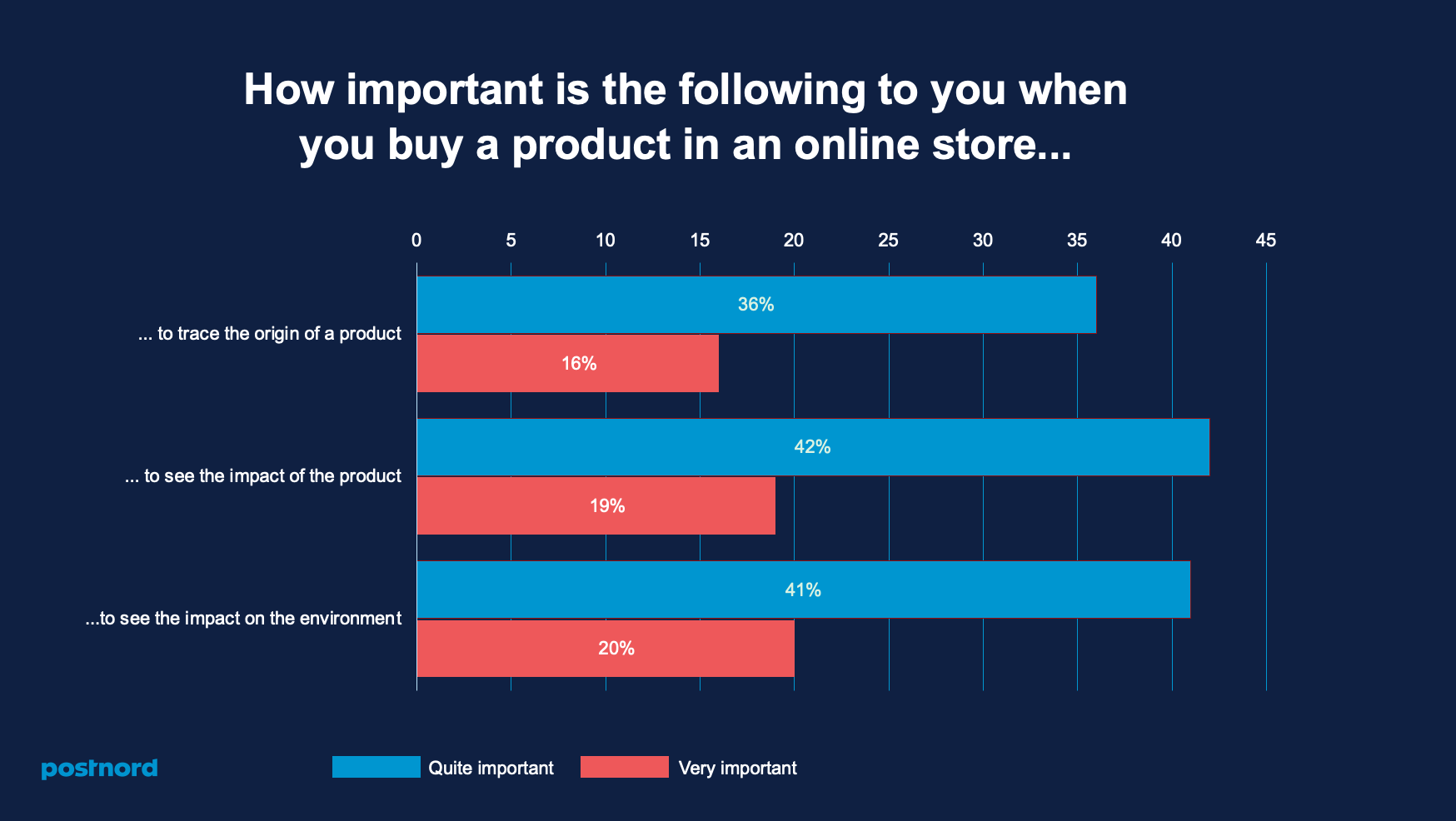Your guide to sustainable e-commerce
Sustainability is and will continue to be one of the most important factors in e-commerce. As awareness of environmental and social sustainability grows among both consumers and businesses, so do the demands for sustainable e-commerce. But what does sustainability mean, why is it needed, and how can you run a sustainable e-commerce business?
What does sustainable e-commerce mean?
For many, sustainability is synonymous with environmental awareness. However, the concept of sustainability has three dimensions - ecological sustainability, social sustainability and economic sustainability. Sustainable e-commerce is therefore not only about the environment but also about social and economic sustainability. This means that a sustainable e-commerce business can offer its customers a secure e-commerce experience where both the production and delivery chains are carried out with both social and environmental aspects in mind.
Why is sustainable e-commerce needed?
One of the main reasons why sustainable e-commerce is needed is to enable all people to live in a society of ecological, social and economic security. So you're helping to eradicate poverty, stop climate change and create peaceful and secure communities in the way you can - by conducting sustainable e-commerce.
E-commerce has been criticised for years for being an environmental villain, giving rise to unsustainable consumption, unnecessary transport, more emissions and unsafe working conditions. However, today's increased digitalisation and technological developments have enabled e-commerce to become an increasingly sustainable option. Two examples of solutions that create more sustainable e-commerce are smarter delivery chains and greener transport.
How to create sustainable online trade
Today, there are great opportunities for e-tailers to create a sustainable online shop from purchase to final delivery. But it won't happen overnight. It takes time to explore how the company can manage its resources more intelligently to create sustainable flows. You may also need to challenge established ways of working to create new sustainable and effective practices.
Here are some concrete examples of how you can start working towards a sustainable e-commerce.
- Reduce paper consumption.
- Reduce the air in the cartons. This way, the packages take up less space during transport.
- Opt for recyclable and/or compostable packaging.
- Reuse packaging.
- Choose environmentally friendly means of transport for your parcels.
- Send your deliveries as unit load.
- Offset your deliveries.
- Set requirements for your subcontractors.
In other words, there are many things you as an e-commerce manager can do and think about to contribute to a more sustainable e-commerce and thus a greener and safer world.
PostNord helps you create sustainable e-commerce
As a leading provider of parcel and logistics services, we at play a central role in making everyday life both easier and more sustainable for everyone who uses our services.
With our PostNord Business Portal service, you can reduce your environmental impact by taking control of your deliveries and ensuring that they are made in a sustainable and efficient way. Here are three examples of how the portal can help your e-commerce business act more sustainably.
- QR code for returns: You no longer need to send a return slip with every shipment. Send a QR code to your return sender instead. If they want to return an item, they can go to a retailer, show the code and get a delivery note printed out.
- Climate offsetting: When sending parcels via the Business Portal you can add the option of climate offsetting.
- Environmental reports: Find out how much your deliveries affect the environment. The report can be easily exported and used in e-commerce sustainability work.
Working with sustainable deliveries
Transporting goods safely and sustainably is a constant challenge in trade and transport. As an e-retailer, you can influence developments in the logistics and transport sector by the way you choose to deliver a product. Investigate how deliveries are made. How are the goods transported? What fuel is used for transport? Is transport capacity being fully utilised? How are staff trained? Think the same way about all your subcontractors.
As an e-retailer, you can contribute to sustainable deliveries by planning your logistics, taking control of deliveries, packing correctly, choosing more environmentally friendly delivery options and being transparent. In a survey conducted by PostNord in Sweden, 78% of consumers said they would be willing to pay SEK 5 extra for a sustainable delivery. Why not test whether this is true for your customers by offering a green option in the form of carbon-offset delivery in your checkout?
Sustainable e-commerce in numbers
Many consumers believe it is important that e-tailers take sustainability into account. Sustainability from an ecological perspective is particularly important when it comes to products that consumers eat, wear or give to their children. As many as 86% of consumers think it is important that the food they buy has been produced with the environment in mind. Fashion and beauty products are also considered important for consumers in terms of sustainability, both ecologically and socially.

Although consumers surveyed in PostNord's E-barometern Q1 2022 say they want sustainable options and value sustainability highly, few would cancel a purchase due to a lack of sustainability consideration.
In the survey, around one in five people say they always try to make informed choices when shopping online and overall 84% of consumers sometimes make informed choices when shopping online. Despite the overwhelming desire to take sustainability into account, 63% of consumers would not complete a purchase for sustainability reasons. 59% also tend not to choose sustainable options to any great extent when shopping for various products online.

The survey also shows that sustainability is not high on the priority list of the companies surveyed. However, half of the companies say they are actively working on sustainability, but do not actively promote sustainable alternatives on their websites.
Consumers want to know the environmental impact of the product
Most consumers want to be able to monitor the environmental impact of a product during production, delivery or throughout the processing chain.

One third of e-commerce companies work to some extent on reporting the environmental impact of their products during transport. Overall, 57% of companies report the environmental impact of their products to a great or some extent.
Around 60% of consumers consider information on the environmental impact of production and supply to be important, with one in five considering this information to be very important. 69% of companies say that they are working on reporting the environmental impact of production and raw materials to some or quite a large extent. So when it comes to the importance of demonstrating the environmental impact of manufacturing and raw materials, there is consensus between companies and consumers - it's important.
It is also consistent with how clearly the sustainability aspect appears on company websites. Half of consumers feel that it is clear how the products are delivered from the warehouse to their homes, while a third feel that it is clear what materials the products are made of and how sustainable they are from an environmental point of view.
Consumers want to know more about corporate social sustainability
Consumers want to know more about corporate social sustainability
As mentioned earlier, sustainability is not only about the environment, but also about social aspects. However, the survey shows that social working conditions are the aspect of sustainability that e-retailers work on the least. Only a few percent of e-commerce companies say they focus most on good working conditions and fair compensation for workers in the country of production. 43% say they are not working on the issue at all and 43% to some extent.
It is thus clear that e-traders focus more on reporting climate and environmental impacts rather than workers' working conditions throughout the production chain. However, the survey found that consumers want more information about social working conditions on the websites of e-commerce companies.

